Ex-Iran National Team Footballer Honored For Regime Loyalty
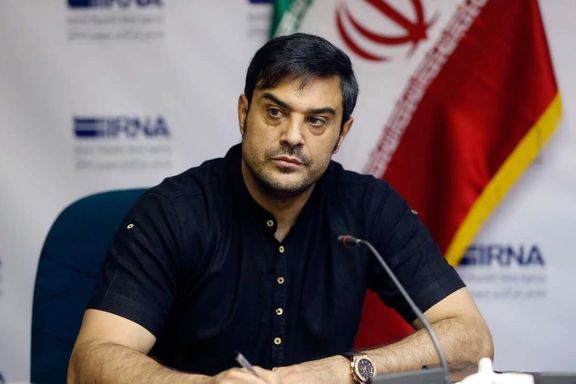
A pro-regime athlete who called for suppression of protests has been appointed as CEO of a famous football club in Iran.

A pro-regime athlete who called for suppression of protests has been appointed as CEO of a famous football club in Iran.
Nima Nakisa, a former goalkeeper of the Iranian national football team, was introduced as the new CEO of Zob-e Ahan football club in Esfahan.
He was one of the few athletes who called the protesters against the murder of Mahsa Amini as "separatists" in November last year and demanded the security forces to repress demonstrators.
Following his comments, countless Iranians on social media slammed his statements, but regime supporters defended Nakisa, citing his doctorate level education as a reason for his authority.
Nakisa did not hold any position as a coach or manager until the nationwide protests began. Some critics say he has been rewarded for standing by the government.
This comes as Iran's security agencies earlier ordered the officials of Persepolis football club in Tehran to remove Karim Bagheri, the team's assistant coach, for his support of protests. Other players have suffered pay cuts, travel bans and social media blackouts for supporting the protests.
Bagheri also threw his weight behind his peer Ali Karimi, who is now one of the prominent opposition leaders, saying “Ali Karimi is neither a traitor nor a defector, but an honorable patriot… What have you done for these people except talking nonsense and insulting their heroes?”
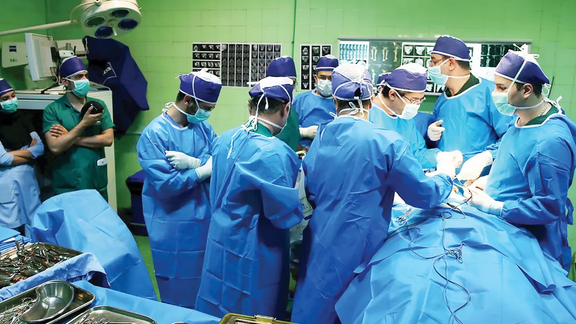
Iran’s Association of Medical Academic Societies has warned against the recent forced retirement and sacking of over 100 doctors from residency admissions boards amidst a major national health crisis.
Speaking to reformist Ham-Mihan newspaper Sunday, Dr Babak Zamani, a member of the Medical Council of Iran’s board of directors, said most of the doctors who were forced to retire or sacked from the boards were among those who had signed statements supporting protests since September.
During the protests doctors and nurses condemned the use of ambulances by security forces for transporting detainees and their use of shotgun ‘birdshots’ that blinded or caused serious eye injuries among hundreds of protesters. They have also said more recently that they could not abide by some authorities’ demands recently to refuse services to women who defy hijab rules.
Security forces also attacked doctors and others with tear gas and shotgun 'birdshots' to disperse them during protests. A young doctor, Parisa Bahmani, was shot dead by security forces.
Dr Zamani also warned that the replacement of top academics forced to quit would be very difficult due to extensive emigration of medical staff in the past few years.
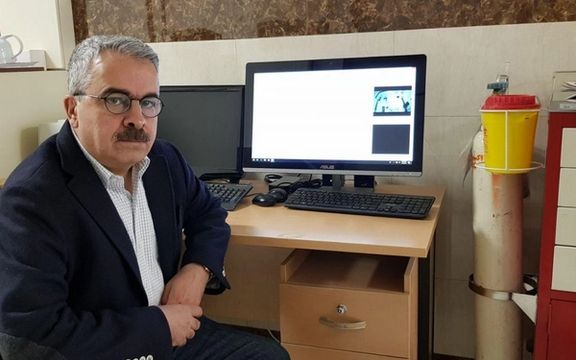
Dr Ali Tajernia, another member of the board of directors of the Association of Medical Academic Societies told Ham-Mihan newspaper that he suspects the Supreme Council of Cultural Revolution may have been behind the plan. “It seems that they are after some sort of cultural revolution again,” he said.
Signatories of the statement challenging the move, who are among the most prominent academics in the country, suggested that there is an orchestrated plan to eliminate prominent doctors from residency admissions boards and urged the Medical Council of Iran and the media not to remain silent about these developments.
It comes amidst revelations that the country’s health sector is 60,000 personnel short across all fields.
The Medical Council of Iran, a recognized trade union for Iranian medical doctors, is responsible for licensing and regulating the medical profession. It has nearly 300,000 registered members who elect the president of the council. Like many other semi-independent organizations and trade unions, the government often tries to control the council and influence its elections.
In late October, the Medical Council prepared a statement condemning the government for undue pressure on the medical community during the protests and intended to publicly read the statement outside its headquarters in Tehran on October 26.
Security forces who were present in the area, however, attacked doctors and others with tear gas and shotgun 'birdshots' to disperse them and prevent the reading of the statement. A young doctor, Parisa Bahmani, was shot dead by security forces.
Videos posted on social media showed protesters chanting "Death to Khamenei" and against clerical rule near the Medical Council building. Two days earlier, a gathering around the medical association of Shiraz, capital of southern Fars Province, had similarly been attacked with tear gas.
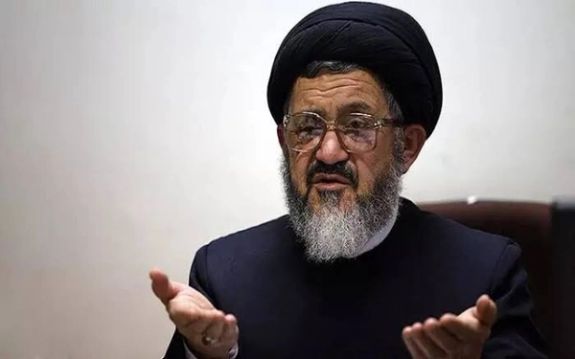
A well-known Iranian cleric says hijab rebels are loose and must be punished while observant women belong to their husbands.
Reza Akrami, a member of the Society of Combatant Clerics, not even the most hardline of Iran’s extremists, said women without hijab can belong to anyone and show themselves to all men.
Speaking to Rouydad24 news website in Tehran Monday, he repeated the supreme leader's argument that wearing the hijab is not a matter of personal choice, but a political and Sharia issue. He insisted that the Quran and religious teachings make hijab mandatory, though many clerics globally would disagree.
“A woman who does not follow the law regarding hijab must definitely be punished,” Akrami said, while at the same time proposing a persuasive path to convincing women about the merits of hijab. Akrami has held many government positions over the years, but is not part of the inner circle of hardliners who form the main base of support for Iran’s ruler Ali Khamenei.
Iran re-launched its hijab police street patrols on Sunday after months of inactivity following popular anti-regime protests, triggered by the death of a young woman in custody. In mid-September 2022 Mahsa Amini, a 22-year-old woman was arrested in the street by the hijab or morality police and received fatal blows to the head.
She passed away in a hospital after three days, triggering the longest and most dangerous popular protests against the clerical regime.
Since then, many women appear on the streets without the mandatory large headscarf covering the upper body and hair. The regime considers this a serious challenge to its authority and hardliners are campaigning to use police patrols to force women to wear the hijab again.

The Tehran University dean says the admission of Hashd al-Shaabi forces at Iranian universities is “academic cooperation with our friends”.
It comes as members of Iraq's Shia Hashd al-Shaabi militias and other proxies of the Islamic Republic have been given permission to study at Iranian universities.
Mohammad Moqimi on Monday called the reports about the use of Hashd al-Shaabi forces to repress the university protests "simplistic", students fearing the forces were being inserted to crack down on dissent as universities continue to be a hotbed of anti revolutionary sentiment.
He said the militia students are "sincere and genuine people."
On Thursday, a group of students from Tehran and Amirkabir Universities expressed opposition to the news of the new student admissions.
In a statement, Tehran University student activists said they would not accept “military forces, whether in combat or school uniforms, within the university premises".
Vowing to resist their presence, they said that the university’s atmosphere is already poisoned due to the presence of professors affiliated with the regime and Basij militiamen masquerading as students.
They accused the authorities of sidelining students by suspending, removing, and suppressing them, while replacing them with borrowed forces from Iraq.
Al-Hashd al-Shaabi was established back in 2014, following a fatwa to fight ISIS, which controlled four governorates and reached the borders of the capital Baghdad at the time.
The Iraqi state-sponsored umbrella organization is composed of approximately 67 different armed factions, with around 128,000 fighters that are mostly Shia Muslim groups, but also include Sunni Muslim, Christian, and Yazidi groups.
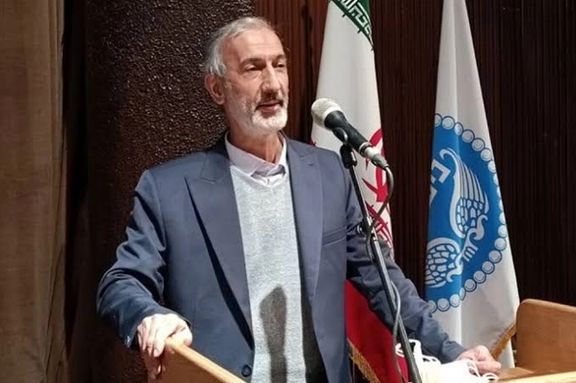
A Tehran University official has insulted fine arts and performing arts students saying they are worthless entertainers.
In an audio file released on Sunday, Abdolreza Seif, the Head of Faculty of Literature and Humanities and an advisor to the dean of Tehran University used a derogatory Persian word for dancers, which denotes immoral entertainers, to describe performing arts students.
Singing and dancing is forbidden in the strict interpretation of Islam, which the hardliners in Iran try to enforce.
Students at the fine arts faculty have been staging sit-ins against stricter hijab rules inside the university premises since last month.
Many were seriously injured by the campus security forces and several others arrested by plainclothes agents.
The sit-in began after the authorities announced new rules for the specialist arts institution which require girls to wear a pullover headscarf with stitched front (called maghna’e in Iran) which is like a nun’s coif, completely covering the head and the neck. Failing to comply, the university has announced, would result in suspension.
Following the incidents, several statements were issued online by students from institutions including Allameh Tabataba'i University, Tarbiat Modarres University and Shahid Beheshti University in Tehran, vowing to continue protests against the repressive policies.
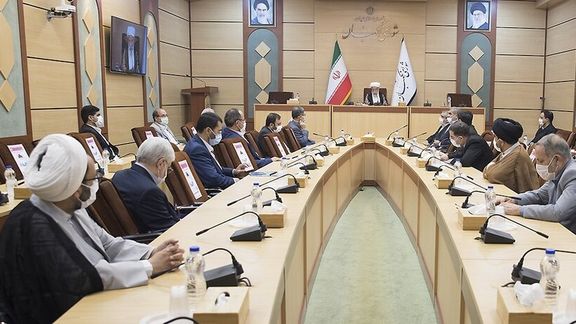
Iranian media and politicians continue the debate about whether Iran's disenfranchised reformist groups will take part in the upcoming parliamentary elections.
At the same time many acknowledge that elections are meaningless in Iran as long as the hardliner Guardian Council determines who should run for office.
The media say less than eight months before the elections, the conservatives have already started campaigning while there is no sign of election-related activities among the reformists.
Several reformist figures have pointed out that considering the precedence set during the latest elections in Iran in 2020 and 2021, no well-known reformist figures will be allowed to run. Some including pundit Saeed Hajjarian have even called for boycotting the elections.
Moderate political analyst Gholamali Rajaee has told conservative website Nameh News that "No decision has been made yet to boycott the elections, but perhaps non-participation will be a choice for voters." He explained that "If reformist voters cannot find the right likeminded candidates, they may decide not to take part in the election all together."
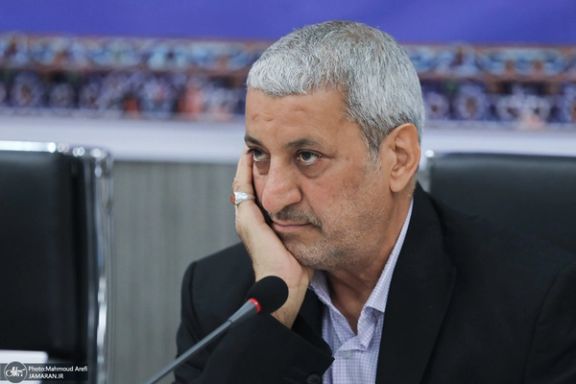
But the issue goes much farther than reformist voters. Both in 2020 and 2021 when mostly hardliners were approved to run, vast segments of the population stayed home, delivering two of the lowest voter turnouts in Islamic Republic’s history.
According to Nameh News, some Iranian conservatives believe that the reformist camp has been radicalized after the election of Azar Mansoori in June as the leader of the Reform Front, an umbrella organization that exercises influence among reformist groups and parties.
Rajaee said that the reformists might come to the conclusion that their candidates will not be allowed by the Guardian Council to run for the election. "When they do not have anyone to elect, naturally, they conclude that their participation will be useless," he said, adding that some of the conservative leaders expect reformists to take part in the election and accept to acknowledge that they have lost the election to conservatives. That is not logical, he said.
"If the reformists do not accept such a deal, then the conservatives brand them as boycotters and the advocates of regime change. They have said that before, and the may say it again," Rajaee argued.
Meanwhile, conservative activist Gholamali Jafarzadeh Imenabadi said that "If the reformists actively take part in the election, the conservatives will have no choice other than forging coalitions to stand against them."
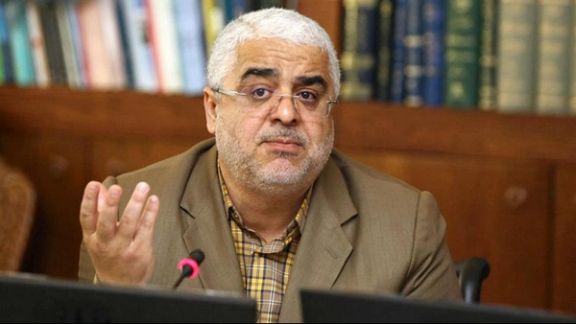
Stressing that the conservatives have already began campaigning, Imanabadi said that some of their leaders have started visits to provinces to organize likeminded political groups ahead of the elections. However, he pointed out that the conservatives might find it hard to create some kind of accord among various groups. Imenabadi added that there are already several conservative and hardliner coalitions with their own separate agendas and some of them do not realize the need to come to some sort of agreement with others.
"They can still further their agenda if reformists and moderate groups do not enter the elections in an organized way. But if they do, then the conservatives will have no choice other than forming strong coalitions.
Along the same lines, in an interview with Nameh News, Hamid Reza Taraqqi, an Islamic Coalition Party member spoke about former Majles Speaker Ali Larijani's probable candidacy and said: "If he is serious about nominating himself he should update his views about revolutionary behavior and values and get ready for a new judgment of his merits by conservative voters and politicians.
Many conservatives have said earlier that Larijani does not have a voters’ base and first of all he needs to decide who he wants to represent, the reformists, the moderates or the conservatives. Larijani was a conservative politician throughout his career, but he got close to moderates during the presidency of Hassan Rouhani (2013 – 2021), and his candidacy was rejected by the Guardian Council for the 2021 presidential election.